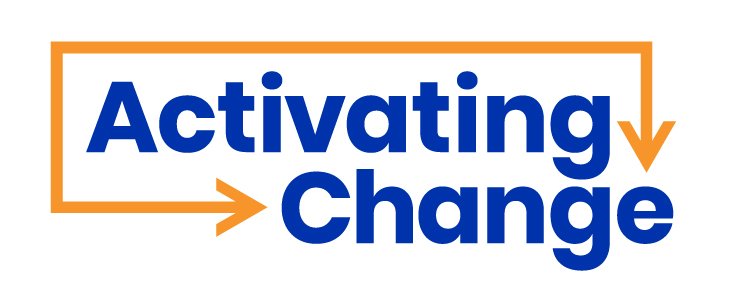
Creating Pathways to Healing for Survivors with Disabilities
People with disabilities experience violent victimization at rates 3-5 times higher than people without disabilities. Yet, they are less likely to receive services that help interrupt violence and support healing from trauma. Activating Change is working to remove barriers to services and create new pathways to healing.
Only 13% of survivors with disabilities receive victim services.
Unfortunately, through no fault of their own, people with disabilities are less likely to receive services that increase their safety and support their healing. The barriers are even greater for people with disabilities and Deaf people from communities of color and other marginalized communities. The two organizations most likely to help - survivor advocacy and disability organizations - haven’t been designed to serve survivors with disabilities and they don’t routinely work together. This creates barriers to survivors with disabilities getting the support they need.
Activating Change is driving a field to end victimization of people with disabilities. We support the leadership of people with disabilities in efforts to address violence. We help disability organizations become more survivor-centered and victim services organizations and systems integrate a disability lens. We also bring the two fields together. Working together, we can ensure survivors with disabilities can heal and live free from violence.
Our Solutions
-
Amplifying the Voices and Leadership of People with Disabilities
We support the leadership of people with disabilities and Deaf people in efforts to end domestic and sexual violence by providing training that is designed to strengthen their leadership and advocacy skills and facilitating and supporting leadership opportunities within our organization and the broader survivor advocacy field. We also convene the Uniting to End Violence Against People with Disabilities National Coalition, which is working to amplify the voices of Black, Indigenous, and other People of Color with disabilities and dismantling racism and ableism.
-
Fostering a National Network of Advocates
The Accessing Safety Initiative is a network of community-based collaborations between disability organizations, and culturally-specific and mainstream rape crisis centers and domestic violence programs, as well as other stakeholder groups. We support these collaborations to engage people with disabilities in their community; identify and remove barriers to direct services; enhance coordination of services across organizations, and advocate for policy changes that support survivors with disabilities. The network is active in more than 150 communities across the country.
-
Building Capacity in Community-Based Organizations
Through our National Resource Center and national End Abuse of People with Disabilities campaign, we provide training and expert guidance to people working in disability organizations, mainstream and culturally-specific domestic violence programs and rape crisis centers, law enforcement, and state funding entities. We help these organizations strengthen and expand their work to benefit survivors with disabilities. For example, we build the capacity of survivor advocacy organizations to be more accessible and to fully integrate a disability lens. We also build the capacity of organizations in the disability movement to be more survivor-centered and trauma-informed. Our work with systems and with system actors focuses on reducing harm and disparities, especially among people with disabilities and Deaf people from communities of color, and adopting strategies that promote healing.
-
Advocating for Supportive Policies
We are educating policymakers in Washington about the needs of survivors with disabilities, especially those from Black and brown communities. We are also working to ensure Federal legislation that addresses victimization - such as the Violence Against Women Act and Family Violence and Prevention Services Act - centers people with disabilities and Deaf people and promotes self-determination, sexual rights, well-being, and racial equity. We also work to increase funding for disability-centered programs. We also collaborate with disability advocacy groups to fight for policy changes to address long-standing issues such as mandatory reporting, sexual assault consent laws, guardianship, marriage penalties, and police brutality.
Explore More

Join the Movement
Join our mailing list to be the first to know about events, resources, and news from Activating Change.




